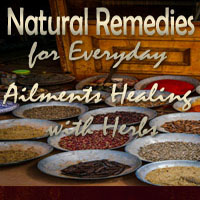


Nurturing Strong Bonds

Resilience in relationships is a fundamental aspect of maintaining healthy, thriving connections with others. Just as resilience helps individuals bounce back from life's challenges, it plays a crucial role in how couples, families, and friends navigate the ups and downs of their relationships. This article explores the significance of building resilience in relationships and offers practical tips to strengthen and maintain these important bonds.
Understanding Resilience In Relationships
Resilience in relationships refers to the ability to withstand and recover from conflicts, setbacks, and adversity while maintaining the core strength and integrity of the relationship. It involves open communication, mutual support, and a commitment to working through challenges together. Here are some reasons why building resilience in relationships is essential:
Conflict Resolution: Resilient relationships are better equipped to resolve conflicts in a healthy and constructive manner. Instead of letting disputes erode the connection, resilient partners work together to find solutions.
Emotional Support: When partners or family members face difficulties, having a resilient support system can provide emotional stability and encouragement, making it easier to cope with stress and hardship.
Long-Term Bonding: Resilient relationships are more likely to withstand the test of time. By learning to adapt to each other's changing needs and circumstances, couples and families can build enduring bonds.
Practical Strategies For Building Resilience In Relationships
Effective Communication: Open, honest, and empathetic communication is the foundation of resilient relationships. Encourage active listening and express feelings and concerns constructively.
Conflict Resolution Skills: Learn how to resolve conflicts in a healthy way. Use "I" statements to express your feelings and avoid blaming. Seek compromise and solutions that benefit both parties.
Emotional Intelligence: Develop emotional intelligence by recognizing and managing your emotions and those of your loved ones. Understanding and regulating emotions can prevent unnecessary conflict.
Quality Time: Spend quality time with your loved ones. These shared experiences create a sense of togetherness and strengthen your connection.
Respect Boundaries: Respect each other's boundaries and individuality. It's crucial to give each person the space and autonomy they need.
Adaptability: Understand that life brings change, and relationships must adapt. Flexibility and a willingness to adjust to new circumstances are key to resilience.
Problem-Solving: Work together to find solutions to challenges. Instead of dwelling on problems, focus on identifying actionable steps to address them.
Positive Reinforcement: Acknowledge and celebrate successes and milestones in your relationship. This positive reinforcement can boost morale and create a sense of accomplishment.
Seek Professional Help: If a relationship faces significant challenges, consider seeking the guidance of a therapist or counselor. They can provide valuable tools and insights for building resilience.
The Benefits Of Resilient Relationships
Resilient relationships bring a host of benefits. They offer a safe and nurturing space for individuals to grow, thrive, and face life's difficulties together. In times of adversity, such relationships become a source of strength, offering the support and love needed to overcome challenges.
Moreover, resilient relationships often inspire trust and a sense of security. Partners and family members know they can rely on one another, fostering a deeper emotional connection.
Building resilience in relationships is a vital component of maintaining strong, healthy, and enduring connections. By practicing effective communication, conflict resolution, and emotional intelligence, individuals and groups can create resilient bonds that weather life's storms and continue to thrive.


Harnessing Nature's Healing Power
 Aromatherapy: An Age-Old Practice
Aromatherapy: An Age-Old Practice
Aromatherapy finds its roots in ancient civilizations, where aromatic compounds derived from plants were used for their healing properties. These natural extracts, known as essential oils, are now being rediscovered as potent tools for enhancing health.
Physical Well-Being
The physical aspect of health is a cornerstone of overall well-being. Aromatherapy oils offer a wide range of benefits in this area. Essential oils such as lavender, eucalyptus, and tea tree oil are renowned for their ability to alleviate physical ailments. Lavender, for instance, is celebrated for its calming properties, making it an excellent choice for reducing stress and promoting relaxation. Eucalyptus and tea tree oil, on the other hand, are well-suited for respiratory health and can help relieve symptoms of congestion and coughs.
Emotional Well-Being
Emotions play a crucial role in our health, and aromatherapy oils have the potential to uplift our spirits and promote emotional balance. Scents like citrus, rose, and chamomile can enhance mood and reduce stress. By inhaling these fragrances or using them in relaxation rituals, individuals can experience a positive shift in their emotional states, fostering emotional well-being.
Mental Well-Being
Cognitive health is another vital component of overall well-being. Aromatherapy oils can enhance mental clarity, reduce stress, and improve concentration. Oils like peppermint and rosemary are particularly effective at boosting cognitive function.
Nourishing The Mind For A Healthier You
 Leafy Greens: Spinach, kale, and other leafy greens are abundant in folate, a B-vitamin that supports the production of mood-regulating neurotransmitters, such as serotonin and dopamine. Consuming these vegetables can contribute to a more positive outlook on life.
Leafy Greens: Spinach, kale, and other leafy greens are abundant in folate, a B-vitamin that supports the production of mood-regulating neurotransmitters, such as serotonin and dopamine. Consuming these vegetables can contribute to a more positive outlook on life.
Berries: Blueberries, strawberries, and blackberries are brimming with antioxidants. These compounds combat oxidative stress and inflammation, both of which have been associated with mood disorders. Berries can help protect the brain from damage and contribute to a more balanced mental state.
Dark Chocolate: High-quality dark chocolate, in moderation, contains compounds that trigger the release of endorphins, the "feel-good" hormones. Additionally, it contains flavonoids, which have been linked to reduced symptoms of depression and anxiety.
Avocado: Avocados are a great source of healthy fats, particularly monounsaturated fats, which support the brain by maintaining proper blood flow and reducing the risk of cognitive decline. This can lead to improved cognitive function and emotional well-being.
Nuts: Almonds, walnuts, and pistachios are nutrient-dense superfoods rich in B vitamins and magnesium, which play a role in mood regulation and the prevention of anxiety and depression.
Empowering Individuals For A Better Future
 Understanding Health Education
Understanding Health Education
Health education is not limited to classrooms or formal settings; it occurs in various forms throughout our lives. It can be as simple as a conversation with a healthcare professional, reading an informative pamphlet, or participating in community wellness programs. Its primary goal is to raise awareness, increase knowledge, and foster healthy behaviors.
Key Components Of Health Education
Nutrition: Understanding the importance of a balanced diet, portion control, and the impact of different foods on health is fundamental to good nutrition.
Physical Activity: Encouraging regular exercise and its role in maintaining a healthy weight, reducing the risk of chronic diseases, and enhancing mental well-being.
Disease Prevention: Educating individuals about vaccinations, safe practices, and lifestyle choices that can prevent illnesses like HIV, STDs, and cancer.
Mental Health: Destigmatizing mental health issues, promoting self-care, and providing coping strategies for stress, anxiety, and depression.
Substance Abuse: Raising awareness about the risks associated with alcohol, tobacco, and drug use, and supporting addiction prevention and recovery.
Sexual Health: Providing information on safe sex, family planning, and reproductive health.






Nature's Pharmacy
 Diversity Of Plant-Based Natural Compounds
Diversity Of Plant-Based Natural Compounds
Plant-based natural compounds encompass an astonishing array of chemical compounds found in different parts of plants, including leaves, stems, roots, flowers, and seeds. These compounds include phytochemicals, flavonoids, terpenoids, alkaloids, polyphenols, and essential oils, to name a few. Each of these compounds carries unique properties that make them valuable for a wide range of applications.
Pharmaceutical And Medicinal Uses
Many pharmaceutical drugs owe their origins to plant-based natural compounds. For example, the pain-relieving properties of salicylic acid from willow bark led to the development of aspirin. Morphine, a potent painkiller, is derived from the opium poppy. Plant-based compounds are utilized in the treatment of various medical conditions, including hypertension, diabetes, and cancer. Their effectiveness often lies in their ability to interact with specific biological processes within the human body.
Nutrition And Dietary Benefits
Plant-based natural compounds are abundant in fruits, vegetables, and herbs, contributing to the health benefits of these foods. Antioxidant polyphenols in foods like blueberries and green tea help combat oxidative stress and inflammation. The dietary fiber in oats and psyllium seeds aids in digestion and promotes heart health. Additionally, the essential oils present in herbs like basil and oregano provide unique flavors and aromatic qualities that enhance culinary experiences.
Nourish Your Body And Soul
 Benefits Of Wellness Recipes
Benefits Of Wellness Recipes
Nutrient-Dense: Wellness recipes are packed with essential vitamins, minerals, and antioxidants. They offer a range of nutrients that support the body's functions and strengthen the immune system.
Balanced Nutrition: These recipes aim to provide a well-balanced combination of macronutrients (carbohydrates, proteins, and fats) to ensure sustained energy and satiety.
Weight Management: Wellness recipes often focus on portion control and lower-calorie options, making them a valuable tool for those aiming to manage their weight.
Heart Health: Many wellness recipes are designed to support cardiovascular health by emphasizing heart-healthy ingredients such as whole grains, lean proteins, and unsaturated fats.
Digestive Health: Fiber-rich ingredients, such as fruits, vegetables, and whole grains, are frequently incorporated into wellness recipes to promote digestive health.
Mental Well-Being: Proper nutrition is known to have a positive impact on mental health. Wellness recipes can contribute to mood stability and overall cognitive function.
Creating Wellness Recipes
Creating wellness recipes is an enjoyable and creative process. Here are some guidelines to keep in mind when developing your wellness-focused dishes:
Start With Whole Foods: Base your recipes on whole, unprocessed ingredients like fruits, vegetables, whole grains, lean proteins, and healthy fats.
Portion Control: Pay attention to portion sizes to avoid overeating. Consider using smaller plates to help control portions.
Flavorful Spices: Opt for herbs and spices to add flavor to your dishes instead of excessive salt, sugar, or unhealthy condiments.
Balanced Plates: Strive for balanced plates with a variety of colorful vegetables, a lean protein source, and whole grains.